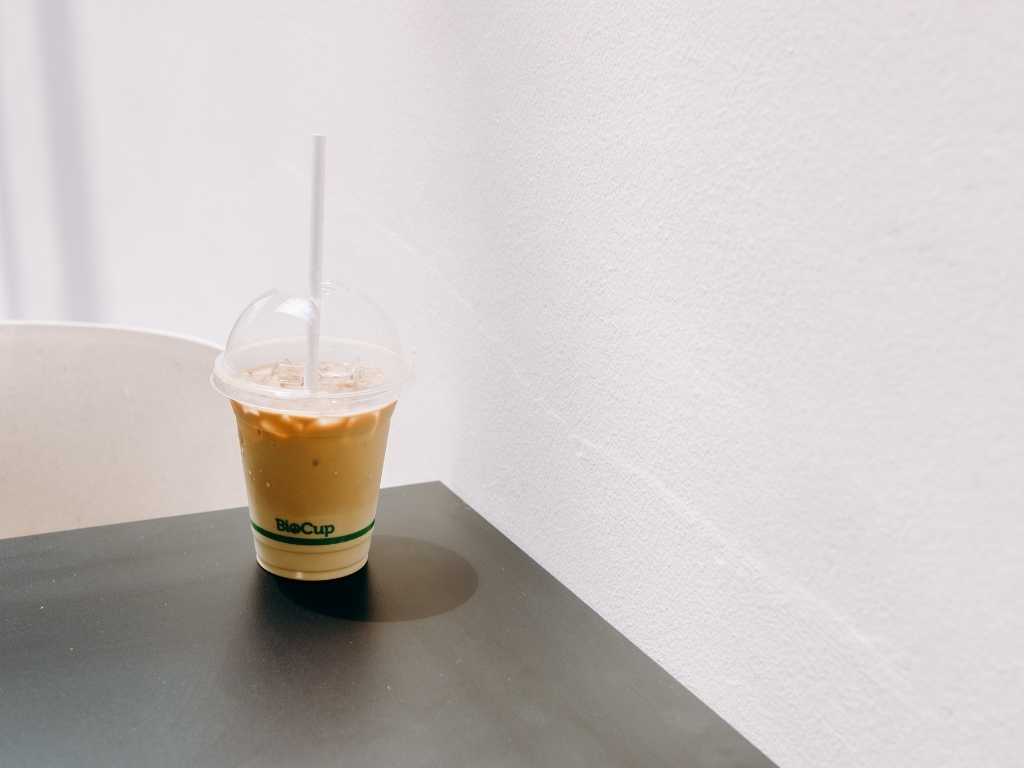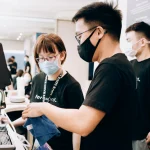Straws have become the strawman for the push for sustainability over the past 3 years since World Wide Fund for Nature (WWF) Singapore started the PACT (Plastic ACTion) initiative in 2019. Through PACT, supported by the National Environment Agency (NEA) and Zero Waste SG, over 270 food and beverage (F&B) outlets in Singapore have pledged to phase out plastic straws by 1 July 2019.

From sippy lids to Solon straws
Foreword Coffee Roasters faced a unique situation at our cafes. Since we started our environmentally conscious journey in 2017, regular customers know us for not providing straws from the get-go. At the start, we served our cold drinks in hot paper cups with lids which allow for sipping. Such “sippy lids” were popularized by Starbucks in 2018 in their pursuit to eliminate the use of straws. Since then, sippy lids are becoming more common in the F&B industry, including McDonald’s in 2021.
It was not until 2019 that we chanced upon a new material developed by RWDC Industries. We adopted the Solon straws which are made with PHA (or polyhydroxylalkanoate) and biodegrades naturally in environments with microbes. Thus, we “officially” started to provide PHA straws at our cafes just as we joined PACT to stop the use of plastic straws.
As with any naturally biodegradable products, quality degrades over time and the Solon straws are no exception. With a low uptake on the use of straws, they have since become brittle, and customers are often left with broken straws which affect the customer experience. Customers ended up using more straws from us when their straws break. This pushed us to search for the next alternative.
Our dine-in solution: Glass straws
There are many alternative straw materials available in the market, from the single-use to the reusables, such as stainless steel, silicone, bamboo, and edible plant-based materials such as tapioca and rice. In our cafes, we have been using our glass straws for dine-in, which provide a classy look when paired with our glass cups. That being said, we do have breakages that happen in our cafés every now and then. Still, with the adoption of glass straws, we have eliminated straw waste for customers who choose to dine-in at our cafes.

The debate over takeaway straws
The tricky part comes for our takeaway straws. While the use of edible plant-based materials for our straws seems like a solution with its plastic-free nature and are naturally biodegradable, the production of edible straws inevitably compete for raw materials which could be used for sustenance. With recent news that world hunger is on the rise, using edible materials is of concern to us.
With our considerations clearly in place:
- we do not want plastic as a material,
- we do not want to compete with food sources,
we found a suitable alternative for our straws which will be implemented with immediate effect across all Foreword Coffee Roasters outlets.
Bagasse straws have been chosen to be our next best alternative for straws at our cafes as it is naturally compostable, strong, and odourless when consuming beverages. Sugarcane pulp (aka. bagasse) is the fibrous substance left behind after extracting sugarcane juice. It is a by-product of the sugarcane industry and is usually disposed of or left to rot. Bagasse is now a renewable resource to produce paper products – including straws.

In Singapore, about 79% of domestic waste are incinerated. While composting is not one of Singapore’s strategies to tackle the issue of increasing waste, the idea of using biodegradable products is to reduce the reliance on plastics which lasts forever in our environment if they are not disposed of properly.
Our quest for the last straw is a balance of multiple factors including cost, customer experience, and environmental impact. While bagasse straws are an environmentally friendly option, nothing beats not using straws in the first place. We believe it is the onus of businesses to come up with (innovative!) ways to nudge consumers to lead a greener lifestyle while considering the diverse needs of customers. Ultimately, what we hope for is a growing virtuous cycle where businesses lead the change for consumers, while consumers put in their dollars to support businesses who are making the change for a more sustainable world.





